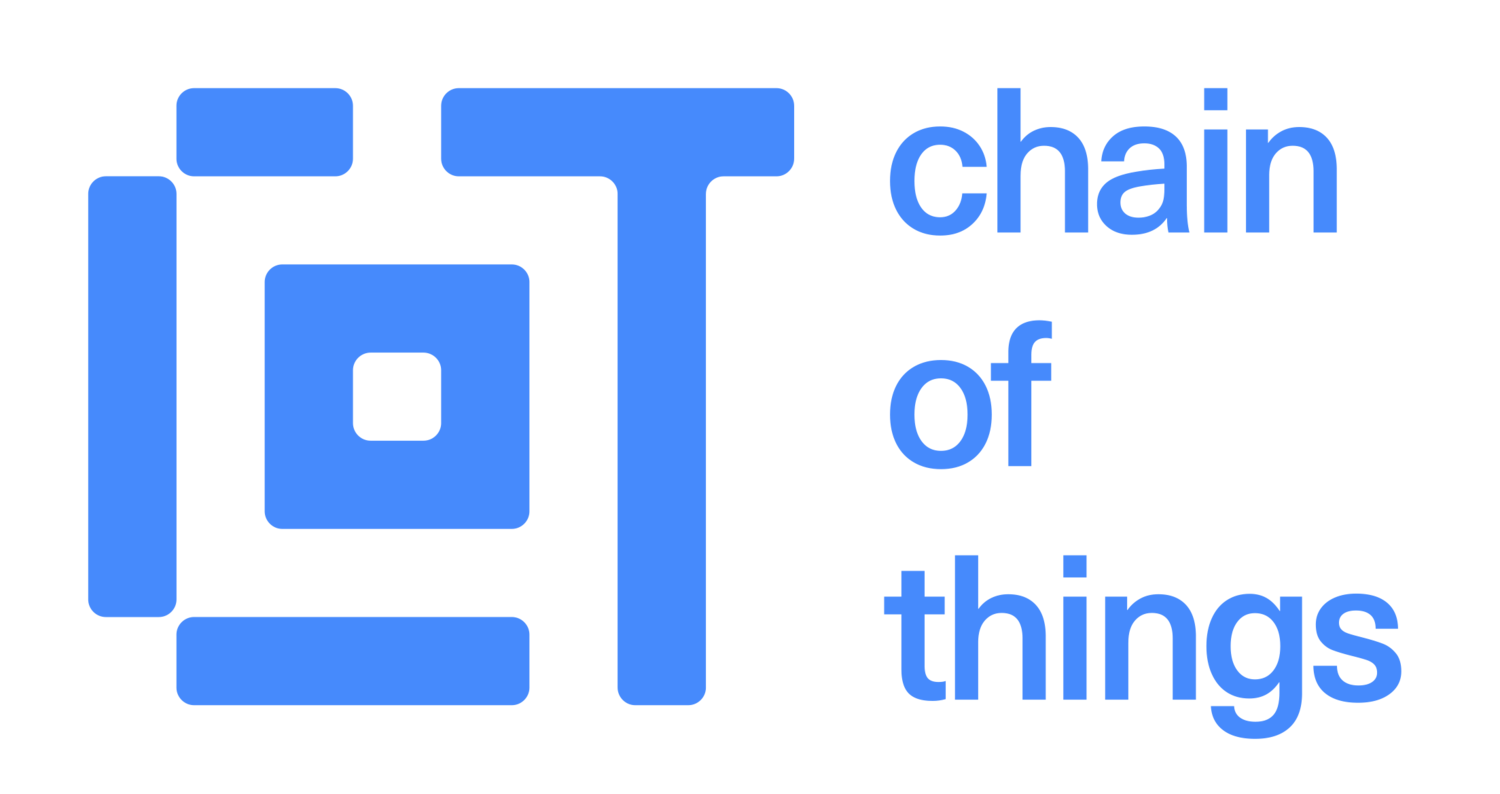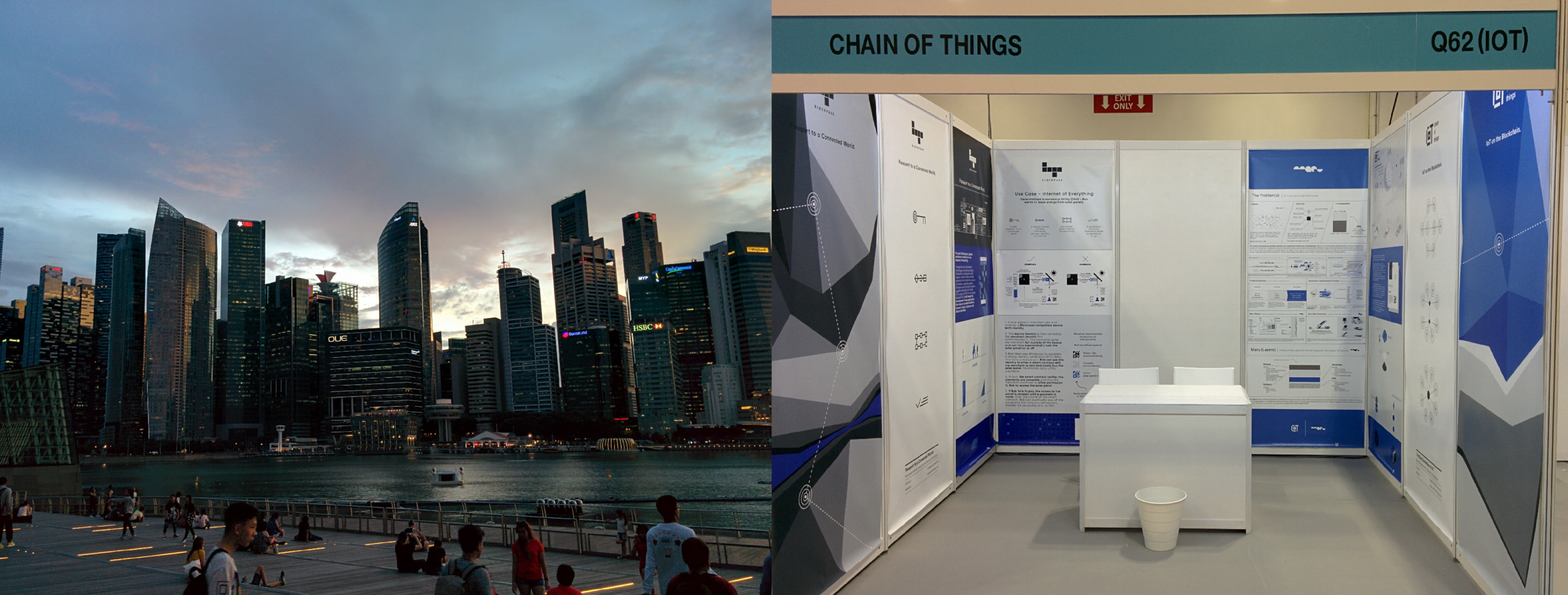Blockpass and Chain of Things recently attended the Smart IoT Singapore conference to help promote the joint venture focused on the connection of human, company, and device identities. While the immediate focus of Blockpass is the development of a KYC/AML whitelist platform to support the compliant evolution of the blockchain, ICO, and fintech ecosystems, its origin and long term goals are founded in IoT and device identity.
Blockpass itself, actually began as a decentralized autonomous solar utility. Chain of Things, as one of the joint venture partners, has spent the last 2 years researching the fundamental potential of blockchain to solve serious problems with IoT security and interoperability. The conclusion of blockchain’s baseline value add to IoT is that the identity of devices from their birth on the factory floor can provide a very strong ownership point with regards to general control of device data and actuation. With this fairly new concept of ‘birth certificates’ for devices (and objects in general), one can construct very efficient utility models through the connection of HUMAN, COMPANY, and DEVICE identities. The problem was, no platform yet exists to connect the identities of humans and companies with the identity of devices. So instead of just developing an quick fix internal solution, the joint venture paused the original solar application to develop a comprehensive platform to serve as a scalable conduit between all three identities.
On this point of device identity, though longer term in scope, engagement with the developing IoT ecosystem is essential as it will complete the broader goals of Blockpass.
At the Smart IoT event, Conor Colwell participated in a panel discussion which included members of Otonomous, Wismut Labs, Bluzelle Networks, and Google. The panel subject, “How Blockchain can Change the Future of IoT”, relates directly to various applications that can be enabled through Blockpass and its focus on supporting device identity and how it relates to the identities of humans and companies.
Below is an excerpt of Conor’s contribution to the panel discussion as originally published in the Asia Pacific Security Magazine:
Conor [Chain-of-Things]: "One of our projects focuses on the recording of 'proof of
solar power generation' via a data-logging device onto a BlockChain. The renewables sector has grants and incentives for producing renewable energy, however the processes for verification of energy produced are largely paper based and or, if digital, are open to being manipulated. Here we considered the writing of renewable data directly from the solar panel to a BlockChain with a minimum amount of steps. Once the data is on the BlockChain, it is ostensibly secure. Once we are in a position to create reliable renewable energy data from IoT devices then we can devise an incentive payment rail so that incentive schemes can be paid automatically (via a smart contract on a distributed ledger), facilitating a variety of additional applications. There are several challenges relating to security and authenticity. For example, data stored on a BlockChain is only as good as the sensor that it originates from. It is essential to secure the authenticity of the data’s point of origin with as much immutable detail as possible. Initial concepts for this involve strong device identity characteristics to prevent against fraudulent data due to malware or device tampering. This can be accomplished by monitoring sensor firmware authenticity and multi element sensor environmental data authenticity. Another is securely sending data from logger to ledgers. The depositing of sensor data on a distributed ledger will occur in a similar fashion to that in which a traditional crypto currency transaction record takes place. In this case, however, it is important that the data origin authenticity is first confirmed so that unqualified data does not pollute the ledger."
The full article can be found here: http://www.asiapacificsecuritymagazine.com/how-blockchain-can-change-the-future-of-iot/


